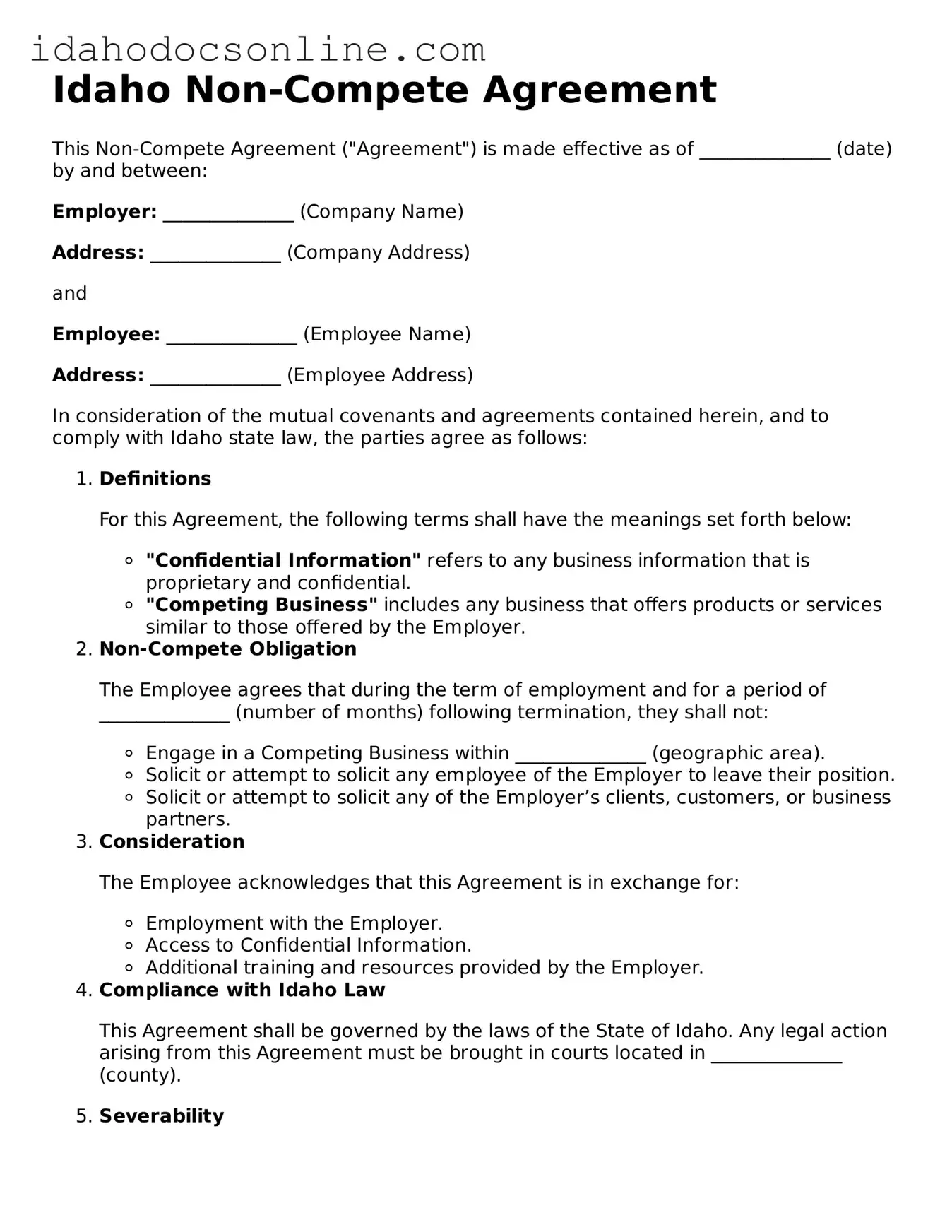Free Non-compete Agreement Form for Idaho
A Non-compete Agreement in Idaho is a legal document that restricts an employee from working for competitors or starting a similar business for a specified period after leaving a job. This form is designed to protect an employer's business interests and confidential information. For those considering this agreement, it’s essential to understand its implications and requirements.
To get started, fill out the form by clicking the button below.
Fill Out Your Document

Free Non-compete Agreement Form for Idaho
Fill Out Your Document
Need speed? Complete the form now
Complete Non-compete Agreement online — edit, save, download with ease.
Fill Out Your Document
or
Free PDF
